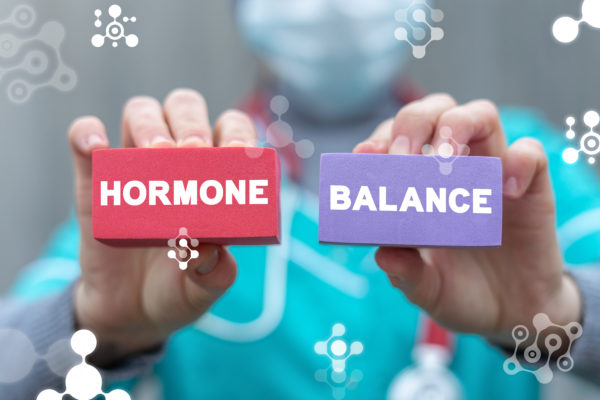Every time we turn around these days it seems we’re inundated with another trope in the media about toxic masculinity or how terrible a world run by men is. If you look at the data, however, it seems that western societies are not facing a crisis in too much testosterone, but too little.
We’ve all heard about testosterone, but even most men don’t really understand just how powerful the hormone is. Testosterone affects an extremely large proportion of a man’s life, in his mind, body,
and spirit. It has a direct effect on a man’s muscle mass, sex drive, bone strength, heart health, memory, penis size, and even his sense of self-worth.
This one hormone controls most of what we consider to be “manliness,” and it has been declining across men in western society in alarming proportions. There is a certain level of testosterone reduction that is considered normal to see in men as they age (about 1% per year in men over 30), but certain factors have been leading to large numbers of men having far lower testosterone levels than they should for their age.
There are a lot of different factors that could be potentially contributing to the drop in testosterone levels in men today across the western world, which we will cover in this article. Most importantly, we will help you to understand what the signs of low testosterone levels are so that you can identify if this may be an issue that you are facing. Thankfully, there is good news – there are several ways to correct the issue and get your testosterone levels back up if it is.
Summary
There are many different aspects of our lives and society today that are leading men across the western world to have lower testosterone levels that negatively affect their lives. Poor diet, lack of sunlight, exercise, or too much stress are all factors that can lead to lower testosterone levels in men, but thankfully there are simple lifestyle changes, supplements, and Testosterone Replacement Therapy options available through anti-aging clinics, that can help counteract these negative effects on a man’s life. This article will help outline what is causing lower testosterone levels in men today, what lifestyle changes can be made to counteract these, and what supplements & medical treatments are available to reverse the symptoms of low testosterone levels.
Signs & symptoms of low testosterone
A recent study found that as many as 40% of men over 45 years old may suffer from andropause or low testosterone. While this could be easily treated, another study has recently shown us that as few as 12% of the men who have the symptoms of low testosterone will actually seek treatment. This is worrisome, as anti-aging clinics like Prolong Labs are available to help men evaluate, diagnose and treat the symptoms of low testosterone at no extra cost to them. The effects of low testosterone can be quite harmful to men, as the symptoms listed below will show:
- Low sex drive
- Fatigue
- Reduced lean muscle mass
- Irritability
- Erectile dysfunction
- Depression, a loss of confidence or sense of self-worth
- Increased weight and fat gain
- Memory loss
Why is testosterone dropping in western men?
There are those of us who hate change, and those of us who embrace it. Even amongst us who embrace it, there comes a time in a rapidly changing society like ours where it becomes extremely difficult to isolate a single contributor to a problem when there are thousands of variables to choose from.
We do know for sure that some of the largest contributors to lower testosterone levels in men are diet, exercise, stress, and lack of sleep. We also know that BPAs, chemicals present in some plastics used for food & drink containers, leech into the contents of plastic bottles and can affect human hormones. Whether or not they are affecting this ever-powerful hormone in men is still to be determined.
Stress, specifically, can have a major effect on testosterone levels in men. Most men simply think of being overworked when they consider stress, but stress can also be caused by the physical factors listed above (poor diet, lack of exercise, and lack of sleep). The last one is extremely important, as the brain begins to crave the worst foods for your body (fatty, salty and sweet) when you are tired, which can lead to a downward spiral of factors that throw your body and testosterone levels out of whack.
When the human body is stressed, it produces a hormone called cortisol. Cortisol is fine when released in small amounts or for a short period of time, as it is a natural part of the body’s response system to stress. When cortisol levels are too high for too long, however, we begin to have problems.
Do you know what one of the main problems is that arises for men when cortisol levels are too high for too long in their body? You guessed it – lowered testosterone production. This is such a large issue (that most people don’t even know about) that one medical professional said that “the signature injury from the war on terror is not PTSD, it’s Low T.”
This statement came from a study performed on US soldiers deployed to warzones who were under constant stress, not only from the war itself but also from the lack of sleep, poor diets, and other life factors that come along with being in a war zone and lead cortisol levels to spike for long periods of time.
While a soldier in combat is a pretty extreme example, there are many other life situations that can lead to the same cortisol spike for long periods of time in a man’s body. When you put together a man who has a heavy workload, a long or busy commute, a family at home, financial stress, poor diet, and lack of exercise – which are all pretty common in men today in the United States – you begin to see where our declining testosterone levels could be coming from.
What foods kill testosterone?
On top of all of the factors listed above, there are certain foods and food ingredients that have been shown to lead to lowered testosterone levels. If you’ve ever seen the documentary Supersize Me, you know that the fast-food diet, when eaten too often, can have disastrous consequences on our bodies.
We don’t yet know the level to which corn syrup and sugar in everything we eat, preservatives that can keep a cheeseburger from spoiling for six months, and high levels of sodium in our food lower our testosterone levels, but we know it isn’t good for them.
Refined carbohydrates and sugars can promote estrogen-type hormones in men, either directly or by converting testosterone into estrogen. Eating too much high fat, high sugar, and processed food can also lead to increased fat deposits in the abdominal region. That belly fat releases an enzyme called aromatase that can convert your testosterone into estrogen.
There is also some evidence that soy and soy-based foods contain chemicals called phytoestrogens, which mimic the effects of human estrogen. If you’ve been opting for that soy latte at the coffee shop or following a plant-based diet, it may be worth looking into whether that has affected your testosterone levels with an anti-aging clinic like Prolong Labs.
Men may not want to hear this, but medical studies also indicate that drinking too much alcohol can also have a profoundly negative impact on a man’s testosterone levels. Prolonged alcohol drinking can lower your body’s amount of a certain enzyme called NAD+ that is responsible for testosterone production in your liver and testes. Drinking every once in a while doesn’t seem to be too much of an issue, but a six-pack every night may be dropping your testosterone levels significantly.
What are some natural ways to boost testosterone?
First and foremost, if you are guilty of any of the testosterone-lowering actions listed above (lack of sleep, lack of exercise, too much stress, or a poor diet), correcting those issues may be a great way to begin reclaiming your testosterone levels and life. If none of those issues describe your life, there are some pretty simple life and diet hacks that you can implement that have been shown to increase testosterone levels in men.
Brazil nuts
Due to their high selenium content, brazil nuts have been shown to increase testosterone levels in men. A 1oz serving provides 988% of your daily selenium needs. In fact, studies have shown that men who take a daily selenium supplement may see an increase in both testosterone and fertility, as it also increases sperm count and quality.
Exercise
Exercise has been shown to benefit your life in many ways, especially in terms of increasing your testosterone production. The exercise itself may increase your levels of testosterone, but it will also help keep your belly fat off, which as we said above can itself be a culprit of lower testosterone.
High-intensity interval training (HITT), weight training, and resistance training have been shown to have the greatest positive effect on testosterone production in men, but anything that will get you moving and keep that belly fat off is a step in the right direction.
Get some sleep
A lack of sleep can cause you to be irritable, more easily stressed, crave the worst foods you could possibly eat, and, yet, lower your testosterone levels. With so much going on and so many different inputs in our lives today, it can be hard to get enough sleep. But now that you know that those extra hours on social media at night may be leading to lower testosterone levels, perhaps you’ll take this tip that you’ve been told your entire life seriously now.
Good diet
It may seem like we’re harping on this diet thing quite a bit in this article, but that’s only because it is so important. There is a well-known mantra in the body-building world that “a six-pack is forged in the kitchen,” meaning your diet has far more to do with a flat belly than the number of crunches you knock out every morning.
Think of food as the gasoline for the sports car that is your body. If you put the low-grade gasoline in a Ferarri, you won’t make it very far before it putters out and you’re putting a $100,000 car on a tow truck. If you wouldn’t do that to a sports car, why would you do it to the most important machine you will ever have?
Can supplements boost testosterone?
There are a lot of different expensive supplements with flashy marketing campaigns full of musclebound & sexy people with names like “SuperTest1000” and “AndroSuperMax” (both fictitious examples) that claim to boost your testosterone. If you look on the back and read the fine print for most of these, you’ll find that none of their claims have been verified or approved by the FDA, and often they are full of chemicals that you can’t pronounce and have never heard of.
There are also cheaper, safer, natural, and organic compounds available as supplements that have been proven in medical studies to raise testosterone levels in men. If you want to pay 10x the price and fall for the flashy ads, be our guest. But if you want natural, cheaper, and more effective supplements to aid in raising your testosterone levels, we will go through some of those options below.
ZMA
Zinc Magnesium Acetate (ZMA) is a supplement available in most vitamin and supplement stores that provides a handful of benefits. Firstly, zinc and magnesium supplements have both been proven to aid in significantly raising testosterone levels in men. Additionally, as we discussed above that lack of sleep can cause lowered testosterone levels, ZMA supplements are used by many as a sleep aid because magnesium is also a healthy, natural way to help your body know that it’s time to go to bed and achieve restful, REM sleep (with no melatonin or diphenhydramine hangover that many get from taking most over the counter sleep aids).
D-Aspartic Acid
If you do an online search on your own to find natural supplements that help raise testosterone levels, you will find dozens of different articles, each outlining and explaining which supplements can help you achieve that goal. Interestingly, most of those lists will have completely different supplements listed, save for one: D-Aspartic Acid.
This supplement is on virtually every list because it has been proven so effective at raising testosterone levels in men. This is because it is a natural amino acid responsible for the synthesis and release of testosterone in your body. One medical study showed that participants taking D-Aspartic Acid for 90 days doubled their sperm count, which is virtually unheard of with other supplements. If you already have normal testosterone levels, D-Aspartic Acid may provide no benefit, but if your levels are low it is a great way to get your levels back up to par.
Magnesium
Magnesium deficiencies have been closely associated with low testosterone levels in men. As magnesium in your body helps to increase both free and total testosterone levels in males, it could be quite beneficial to take these supplements if your levels are low, especially in conjunction with all of the other life changes suggested in this article (sleep, diet, exercise, stress management).
Vitamin D
One silver lining from the COVID crisis is that it help outline for the world just how deficient we were in Vitamin D and just how many disastrous effects this deficiency can have on our bodies. Studies have found that obesity and Vitamin D deficiencies were two of the largest metrics which could forecast if someone would have a mild or severe case of COVID or if they would even catch the virus. Additionally, Vitamin D deficiency is linked with lower testosterone levels.
This could be a potential “chicken vs the egg” discovery, as Vitamin D is produced naturally when your skin comes into contact with sunlight, and men who do not receive much natural sunlight are also less inclined to exercise, which is another major factor in lowered testosterone levels. Whatever the reason, studies have shown that men who take at least 3300 IU of Vitamin D daily may see a 20% increase in their testosterone levels over men who don’t. And if you haven’t got the message yet, this is another great place to stress the importance of exercise to maintain healthy testosterone levels.
Tribulus Terrestris
Unless you frequent supplement shops or all-organic grocery stores, you may have never heard of this natural supplement before, but studies have shown that it provides many useful benefits for males in several functions. If your levels are slightly low but not severe, Tribulus Terrestris is an all-natural supplement that may provide a gentle lift if you aren’t looking for any large moves in your levels. It has also been shown to greatly increase sexual function and appetite in males. If you are suffering from low libido due to low testosterone levels and your partner is not happy, this may be an excellent supplement to add to your daily intake.
DHEA
Another supplement that you will find on many lists of natural ways to increase testosterone levels in men is DHEA. This is a hormone that is produced by your adrenal glands and helps your body to manage testosterone and estrogen levels. Only available by prescription in some countries because it is an anabolic steroid precursor, companies like Life Extension Foundation in the US have great over-the-counter DHEA supplements that can be taken to help boost testosterone levels. This is a pretty powerful one, so if you are considering taking this it would be wise to consult an anti-aging clinic or your doctor first and get some blood labs done to set your baseline levels before you begin.
Fenugreek
Although more research is needed, the most current studies seem to show that the natural herb Fenugreek (available in supplement form) can provide great benefits to increase testosterone and sperm levels in men, even up by nearly 50% in one study. This is another one to be careful of, however, especially if your partner is pregnant or you are planning on starting a family. Fenugreek has also shown that it may cause issues in pregnancy and malformations in developing fetuses, so while there is no data to show that it could transfer from you to your partner if you choose to take it in the powder form be very careful that she doesn’t accidentally ingest it.
Ginger
Ginger has played a role in alternative medicine for centuries, especially in Asian cultures. While eating the extra slices of ginger that you get with your monthly sushi dinner won’t provide a whole lot of benefit, studies have shown that taking daily ginger extract may provide enormous benefits across many different health outcomes, most notably testosterone levels and sperm count (as well as reducing cholesterol and heart inflammation). One three-month study showed an increase in testosterone levels of the participants by 17%, and another study showed that daily ginger supplementation led to a 16% increase in sperm count.
Ashwagandha
While it may not be very easy to pronounce, Ashwagandha, an herb used in Ayurvedic medicine, has been proven to provide a whole host of benefits to those who take it from stress management to performance (both physical and sexual), fertility, and yes, testosterone levels. One study showed that participants taking 5g of Ashwagandha for 3 months experienced a 10-22% increase in their testosterone levels. In this same study, the partners of 14% of the participants became pregnant due to the boost in the fertility of those participants. Another showed increases in physical performance, endurance, and fat loss while also boosting testosterone levels. If you are looking for a great all-around supplement that will help several of the factors that reduce testosterone levels, Ashwagandha is hard to beat.
Testosterone Replacement Therapy (TRT)
If you aren’t a fan of supplements or are part of the population for whom supplements don’t tend to work, there is also the option of going directly to the source and undergoing Testosterone Replacement Therapy (TRT) from an anti-aging clinic like Prolong Labs.
If you identify with the symptoms of low testosterone listed above in this article and don’t want to roll the dice on whether supplements will work or increase your testosterone to the desired levels, TRT has proven to be the most effective in terms of time, cost and results out of all of them. Many people may think that it’s too difficult, time-consuming, or expensive to be evaluated for and undergo Testosterone Replacement Therapy, but anti-aging clinics like Prolong Labs have streamlined the process and dedicated their entire practice to aiding men with low testosterone, which makes the process fast, simple and effective.
There are many different forms of Testosterone Replacement Therapy available to men. TRT is available in pills, sublingual tablets, patches, sprays, gels, and Intramuscular (IM) injections. While each of these forms has pros and cons, IM injections are generally the most preferred and effective method of treatment for several reasons. If you are the type who doesn’t want to dilly dally with supplements that may or may not work and go straight for the sure thing, it would be wise to opt for IM injections for the reasons listed below.
While pills or sublingual tablets may seem easier, they have to be swallowed, digested in your stomach, and metabolized by your liver. How long it’s been since you’ve eaten or how much you have eaten can affect this process, and long-term treatment using the pill format has been shown that it may be very hard on your liver over a long period of time.
The gels, patches, and sprays also sound easy until you look into the logistical and physiological issues that can lead to inconsistent absorption and potential transference to your children or partner via dirty clothes, towels, or physical touch. If you have a lot of hair on your body, the patches, gels, and sprays may not get the same or necessary direct skin contact which can lead to inconsistent levels. If you are exceptionally sweaty or put the patches on directly before or after workouts or showers, you may run into the same issue of inconsistent absorption and levels as the substance is washed or sweated off.
IM injections, on the other hand, insert the testosterone directly into your large muscle groups where it can then be absorbed and distributed to your body. There are two main muscle groups used for IM injections (thigh and buttocks), each chosen because they are large muscle groups where it is easy to avoid hitting nerves or blood vessels. Some men may be afraid of the needle, but if diabetics and others who need to inject themselves every single day can do it, why are you afraid of doing it once a week or twice a month (the frequency and dosage for TRT will be different based on your personal levels of natural testosterone production)?
If you do choose to undergo Testosterone Replacement Therapy rather than the supplements or life changes listed above, one thing is more important than any other choice that you can make in this decision. While there are plenty of shady online labs and pharmacies that you could potentially order from online, those can be extremely dangerous for multiple reasons.
Firstly, a recent WHO study showed that at least one in every ten pharmaceutical products from the third world are substandard or completely fraudulent. Whether you opt for injection or one of the other formats that testosterone is available in, do you really want to take the chance of ingesting or injecting a fraudulent or substandard product into your body?
Additionally, as mentioned above the regimen for Testosterone Replacement Therapy will be different for every man based on his baseline natural testosterone production levels. The only way to know these levels is to undergo an initial evaluation and blood labs with an anti-aging clinic, specialists who have dedicated their lives and practices to assisting men with low testosterone levels. If you choose to acquire testosterone on your own, you will have no idea of what your levels are, no monitoring of your levels as your treatment progresses, and no idea if you are taking the correct amounts or if negative effects are beginning to show up in your body.
If you do choose to undergo Testosterone Replacement Therapy, do yourself a favor and do it the right way, not the careless and dangerous way. Prolong Labs can help connect you with the best anti-aging clinic and medical professionals at no extra cost to you. They make the process safe, simple, and cost-effective, so there really is no reason to do it any other way.
What to avoid (things that don’t work or are not safe)
There are a lot of different over-the-counter supplements that put all of their money into magazine and infomercial ads to try to convince you that their chemical-laden products can help increase your testosterone levels, but most of these are nothing more than marketing gimmicks.
Some of these may in fact provide marginal increases to your testosterone levels or some of the other symptoms of low testosterone, but do you really want to put all of those unpronounceable chemicals in your body if you don’t really have to?
The natural supplements discussed above have been proven to aid in increasing testosterone levels as well as a large range of other health benefits, and by using those you aren’t putting anything in your body that doesn’t belong there. And, of course, you can save a lot of money.
As mentioned above, if your testosterone levels are low and you want to go directly to the source, there is Testosterone Replacement Therapy, the only guaranteed way to raise your testosterone levels directly, safely, and naturally. If you do choose Testosterone Replacement Therapy, we cannot stress this enough – do not attempt to acquire it on your own as there are too many potentially dangerous outcomes. Contact our team at Prolong Labs to set you up with an initial consultation and evaluation to get you on your way towards increasing your testosterone levels and reclaiming your life.
Conclusion
Our society has become one that runs rampant with potentially testosterone-reducing factors. Many of us of working age are stressed out from our busy commute and hectic work schedule. All of us have been overly stressed from the pandemic and constant fearmongering from the negative news that we are bombarded with. Our foods have become full of the very things that affect our hormones and most of us don’t get nearly enough sleep, exercise, sunlight or relaxation.
Thankfully modern discoveries and medicine have provided men today with a way to counteract some of these effects on our lives. If you prefer not to take anything at all, we now know that getting more sleep, daily exercise, and adjusting your diet can help to increase your testosterone levels and lead to a generally better life overall.
If you just don’t have the time to sleep, exercise or eat healthy and homecooked meals every day, the supplements listed above can help raise your testosterone levels over time if they are slightly too low, and Testosterone Replacement Therapy can be used to directly raise your levels to the needed amount.
Anti-aging clinics like Prolong Labs are available to help connect you with a medical team that can give you an initial consultation and evaluation to discover where your natural testosterone levels are, and help to determine the best course of action to bring them back to the needed numbers if they are too low.
Prolong Labs can do all of this at no extra cost to you, so there is no reason to hesitate. The symptoms of low testosterone listed at the top of this article can cause catastrophic negative effects on a man’s life, but we hope this article has helped you to understand that you don’t have to let that run yours.
If you identify with the symptoms listed above or are worried for other reasons that your testosterone levels may be too low, call our team at Prolong Labs today to get started on your path to bringing those levels back up. Our team of medical professionals has dedicated our lives and practice to help men who are suffering from the effects of low testosterone levels, and we would love to help you get yours back up to where they should be. Call us today to begin reclaiming your testosterone levels and your life!






